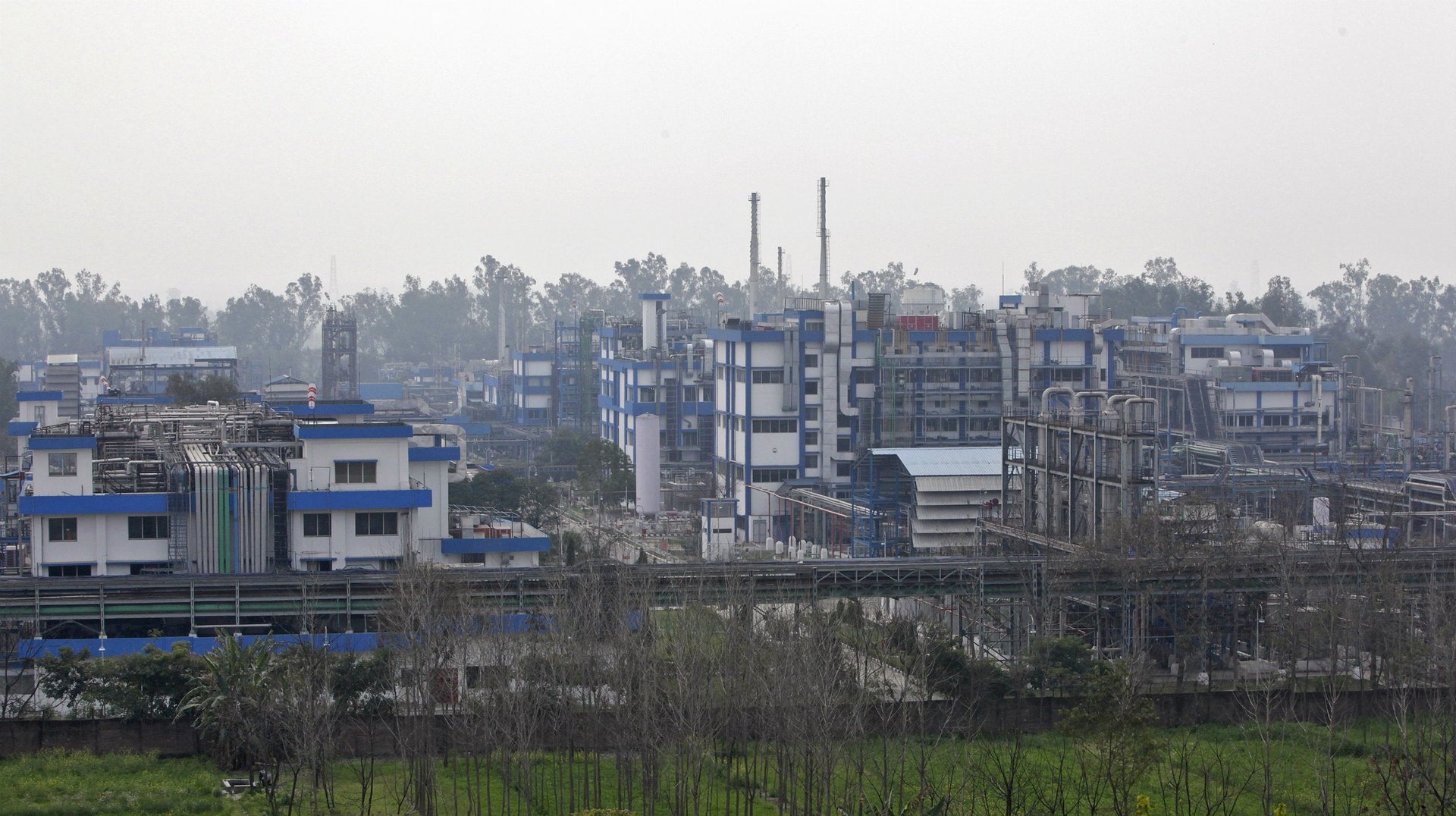Daiichi Sankyo’s Ranbaxy sell-off highlights the pitfalls of making drugs in India
Nearly six years after taking a controlling stake in India’s Ranbaxy Laboratories, Japanese pharmaceutical company Daiichi Sankyo has thrown in the towel, selling its stake to Sun Pharmaceuticals for $3.2 billion in stock. The sticker price is almost $2 billion less than Daiichi paid in 2008—and that doesn’t include money it invested in Ranbaxy or shelled out in fines.


Nearly six years after taking a controlling stake in India’s Ranbaxy Laboratories, Japanese pharmaceutical company Daiichi Sankyo has thrown in the towel, selling its stake to Sun Pharmaceuticals for $3.2 billion in stock. The sticker price is almost $2 billion less than Daiichi paid in 2008—and that doesn’t include money it invested in Ranbaxy or shelled out in fines.
The Daiichi—Ranbaxy deal was heralded in 2008 as an innovative way for Big Pharma to branch out, by acquiring the generic drug makers that were undercutting business and expanding into fast-growing emerging markets like India. The purchase sparked a string of copy-cat deals in India from Abbot Laboratories, Glaxo Smith Kline and others, and helped fuel hopes India would become both a global manufacturing base for generic drugs and a hub for low-cost pharma research.
The Japanese drug-maker was expected to improve manufacturing process at Ranbaxy, which has a long history of run-ins with drug regulators in the US, its largest market, going back to 2002. Instead, serious issues persisted, resulting in a ban by the US Food & Drug Administration on most drugs and pharmaceutical ingredients made in Ranbaxy’s four Indian manufacturing plants. Among the many problems:
- Faking test results: In January, the FDA reported workers at one Ranbaxy manufacturing facility in Punjab were retesting drug ingredients and raw materials” until acceptable results are obtained
- Flies everywhere: Microbiology labs at the plant were in “disrepair” and the flies in one sample preparation room were “too numerous to count,” the FDA said.
- $500 million in fines. In 2013, Ranbaxy pled guilty to US felony charges and paid $500 million in fines for manufacturing substandard drugs and lying about it.
- Faulty manufacturing processes: The FDA had previously blocked imports from another Indian Ranbaxy plant, citing “significant” violations of US manufacturing guidelines.
- Glass in drugs: In November, 2012, Ranbaxy withdrew several lots of atorvastatin, the generic version of the popular heart drug Lipotor, from the market because of possible contamination from glass particles.
Because of Ranbaxy’s widespread problems, and increased scrutiny by FDA, doctors in the US are increasingly distrustful of generic drugs made in India. India’s drug regulators say they are too understaffed to keep up with the industry’s growth.
Canadian drugmaker Apotex’s Indian factory and other Indian generic makers have also come under increased FDA sanction or been forced to recall their products—including Wockhardt, Dr Reddy’s Laboratories, and Sun Pharmaceuticals, Ranbaxy’s new owner. As with Ranbaxy, the FDA found evidence that Sun’s drug-testing records were faked and factory hygiene levels were deficient—though in Sun’s case it wasn’t flies but filthy toilets.